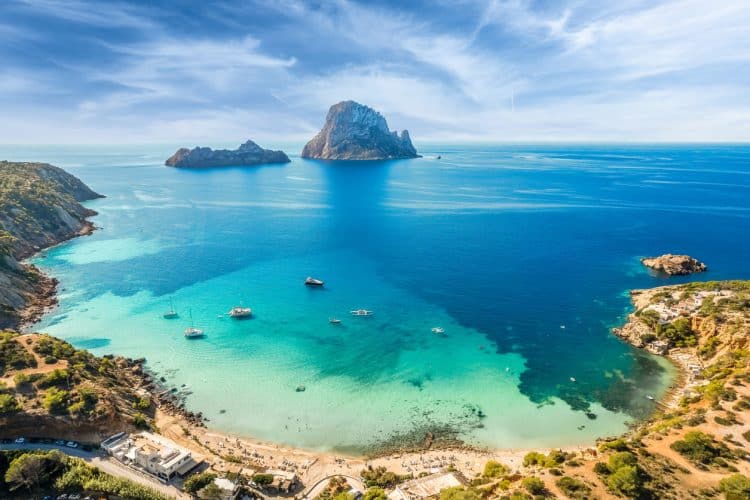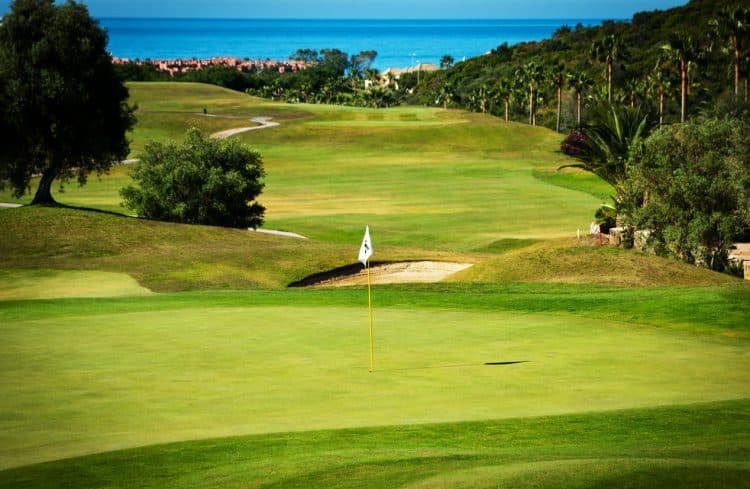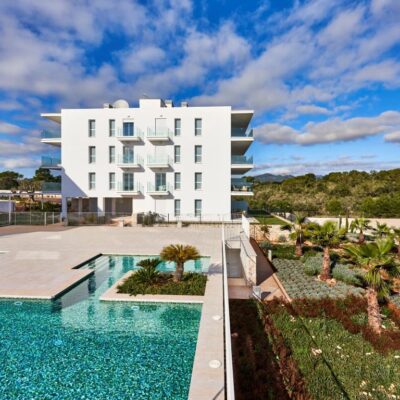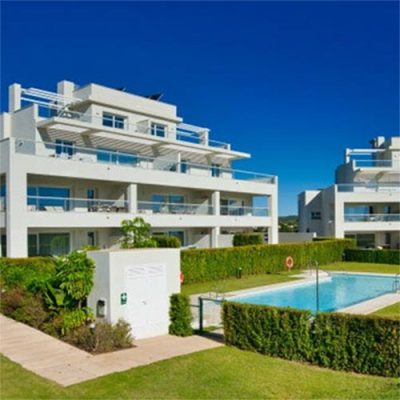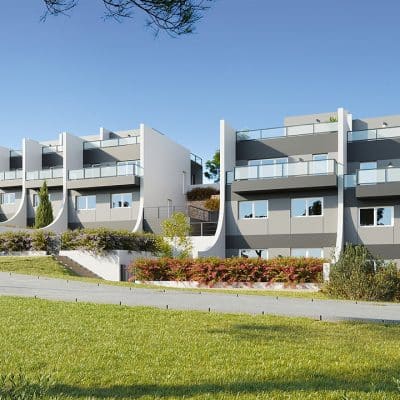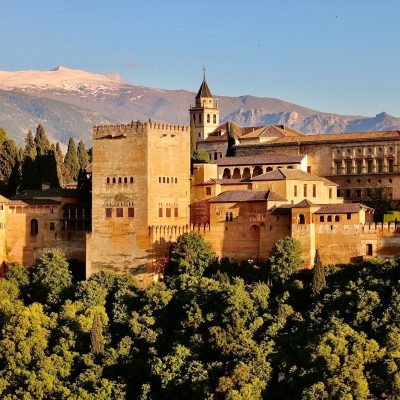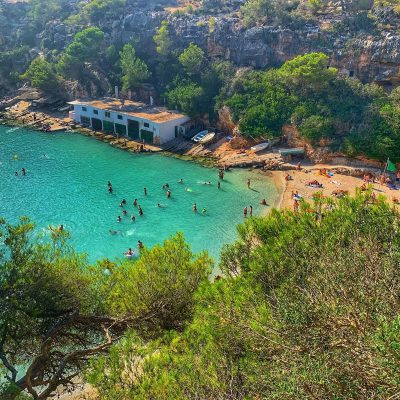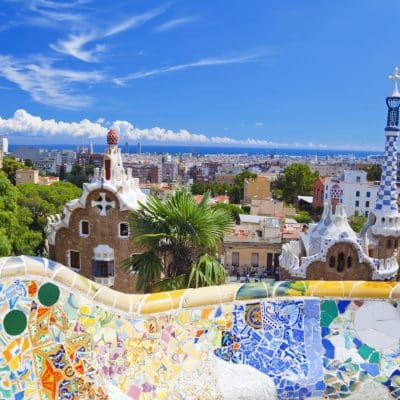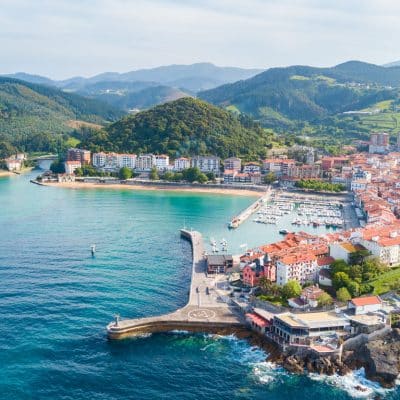Spain in figures
- Continent: Europe
- Population: 47,519,628 (2023)
- Population growth: 0.84% / year
- Area: 505,993 km²
- Density: 93.54 inhabitants / km²
- GDP growth: 2.1% / (2023)
- Official language: Spanish
- Currency: Euro (€ EUR)
- Type of State: Constitutional Monarchy
- Tourists: 71,000,000 people/year (2022)
Population growth again
Spain is a country located in Southwest Europe.
It occupies most of the Iberian Peninsula, which it shares with Portugal . It also shares a mountainous border to the north with France (the Pyrenees), and Andorra, a small landlocked country between the two.
On the Mediterranean coast, it has two small landlocked territories in Morocco. It is bordered by the Mediterranean Sea to the east, and the Atlantic to the north and west. To the south, Africa faces Gibraltar and the southern coast of Andalucia, and is separated by the Straits of Gibraltar, the sea passage into the Mediterranean which is only 14 kilometres wide.
Spain also has the Balearic archipelago, to the east of its Mediterranean coast, as well as the archipelago of the Canary Islands, off the coast of Morocco in the Atlantic.
Our selection in this country
Spain is one of the most tourist oriented countries in the world
Spain is one of the most tourist-oriented countries in the world
It attracted around 81.8 million tourists in 2017 and in 2022 following the COVID Pandemic, the number of tourists increased to 71 million (Reuters).
Following its entry into the European Union in 1986, Spain experienced several decades of significant population growth, and the strong economic growth that followed.
Real estate investment areas
Balearics
- infrastructure: 3 international airports (Ibiza/Mallorca/Menorca), regular ferries
- culture, tourism, well-being
- 17 million tourists/year
- diversity of territories (beaches, mountains, cities and countryside)
Andalucia
- culture, gastronomy, history, well-being
- infrastructure: 2 international airports (Seville / Malaga)
- a very attractive and tourist-oriented region (Cordoba, Seville, Granada, Marbella and Malaga)
Canary Islands
- infrastructures: international airport in each of the 5 islands
- pleasant subtropical climate all year round
- 15 million tourists and 100 million overnight stays/year
Madrid (region)
- infrastructure: international airport, train stations, metro
- capital and nerve center
- preferred global destination for LGTBIQA+ tourism
- culture, well-being, gastronomy
Barcelona (region)
- infrastructure: international airport, train station, metro
- economic market in perpetual growth
- 30 million visitors/year
- culture, gastronomy, beaches, well-being
Evolution of property prices in Spain
In June 2022, the market price per m2 was €1,834 , an increase of 3.85% compared to December 2021 (€1,766/m²).
In the last two years, the average price in Spain reached its maximum in June 2022, with a value of €1,834 per square meter.
Property prices in Spain on the rise
Property prices in Spain have seen steady growth over the past few years, with the average price of a property now standing at €203,000. This figure is up from €169,000 in 2014 and represents growth of more than 20%. Much of this increase can be attributed to the strong economy and growing demand from domestic and foreign investors.
There are several reasons for this rise in real estate prices. First of all, Spain has experienced strong economic growth in recent years, which has led to an increase in demand for housing. Secondly, Spain has been a hotspot for investment in recent years, with foreign investors looking to buy property for investment. Thirdly, with low fixed interest rates, this also played an important role in driving local demand.
According to a recent study, property prices in Spain have been on the rise for a few years, and this trend is expected to continue over the next few years. Madrid and Barcelona are expected to be the market leaders, with prices up 10% and 8% respectively. Valencia, Bilbao and Seville are also expected to experience strong growth, 7%, 6% and 5% respectively. Coastal cities, including Malaga and Alicante, are expected to see the biggest price increases, of 8% and 7% respectively.
Overall, experts are confident that the Spanish real estate market will continue to grow over the next few years. This is good news for buyers and sellers alike, as it means there is excellent long-term investment potential in this market.
From recent MHA meetings in Marbella, Mallorca and Ibiza, it is clear that there is very strong demand from overseas investors, many of whom are looking to settle in this area in Spain.
Pitfalls to avoid when buying a property in Spain
Before you enter into any contract to buy a property in Spain, there are a number of key points to verify:
• were the house and all its facilities built in accordance with the applicable planning regulations?
• if you plan to carry out any extensions or improvements to the property or build additional facilities (such as a pool), what planning consents are required?
• are there any planning restrictions?
• what utilities does the property have?
• if the property is not connected to the mains and has a septic tank, the vendor should provide a Habitation Certificate (“Certificado Habitabilidad) to confirm that the septic tank complies with the law.
• the vendor should provide an Energy Performance Certificate for the property.
• what is the current condition of the property? Depending on the age and type of the property, it may be advisable to arrange for a building survey to be carried out at the same time to confirm the structural condition of the property.
• if you are looking to borrow money from a local bank, the bank will require a report from an independent valuer.
• if you are buying the property through a local property agent, you should be aware that in Spain anyone can call himself an estate agent and there is no legal requirement for an agent to be registered or qualified in any way.
• it is not unknown for some lawyers to act as property agents…
• it is essential that you have an independent lawyer who speaks your language, to carry out the necessary due diligence and to arrange for the necessary surveys or reports carried out before you enter into any Preliminary Contract.
• certain parts of Spain are designated as “military areas” and buyers resident outside the Schengen area need a military permission to buy, sell or carry out extension work on a property in a military area. The process of obtaining a permit is normally a straightforward process, and it can if you have the right lawyer be obtained in two to three months.
• if you are considering recouping part of the running costs of the property through renting it out, there may be legal restrictions on you renting out your property – this is a genuine issue in certain parts of Spain.
• Certain agents and lawyers may advise you that you have to pay your initial deposit directly to the Vendor. A buyer is legally protected and if a sale does not proceed, then the vendor if he is at fault, is legally obliged to pay you back double the value of your deposit. This remains the practice in certain parts of Spain, but the Spanish property market is rapidly evolving in line with other European markets, and MHA would always advise you to insist that any deposit is held by lawyers in a client account pending completion of the sale.
A different set of issues need to be verified in the case of new-build properties (of which MHA by chance has verry considerable experience!), which are simpler and easier to verify. There are fewer pitfalls to beware of and the process should be simpler, but it is still essential that you have an independent lawyer to carry out the necessary due diligence process since there have been whole developments in the past which were not properly authorised and where investors lost their investment as a result.
Conclusion: Do not rush into signing a Preliminary Contract presented to you by a property agent, until your lawyer has carried out the necessary due diligence. You wouldn’t do this at home, and you certainly shouldn’t do it when you are away on holiday!
Steps to buy a property in Spain as a foreigner
Step 1. Obtain a NIE number
The first step is to obtain a Spanish tax number – “NIE” (Número de Identificación de Extranjero). This number is essential in Spain because, without it, it is impossible to open a bank account. It is the equivalent of a “NIF” (Tax Identification Number) for the Spanish.
Step 2. A bank loan
When you want to buy a property, it is possible to arrange a mortgage in Spain for 60-70% of the purchase price.
MHA works with finance specialists in London, France and Spain who will be able to assist you to find the most suitable solution.
Step 3. The Preliminary Contract
Once you have reached an agreement with the seller for the purchase of his property, it is important that you have an independent lawyer to carry out the due diligence on the property before entering into the contract. Note: you should never sign a Preliminary Contract prepared by a third party before the lawyer has had the opportunity to review and approve the contract.
Security Deposit
There is a big difference here between Spain and other European countries: it was common practice when signing the Preliminary Contract, for the buyer to pay the security deposit (usually equivalent to 10% of the purchase price) directly to the seller. In this case, if the sale was not completed because of the failure of the seller to complete, the seller is legally obliged to reimburse the buyer twice the value of the security deposit.
This old practice has evolved and the lawyers MHA works with, will all insist that the deposit is held by them in a segregated account pending completion in order to protect the purchaser.
It is therefore very important to be accompanied by a lawyer at this stage to secure your purchase and MHA will accompany you during this procedure.
Step 4. The Deed of Sale
The notary prepares the Deed of Sale and represents the State. Accordingly the notary does not offer advice to either party, which is why it is essential that an investor receives legal advice from an independent party.
The following charges are to be paid before the signing of the Deed of Sale:
- Property transfer taxes or ITP ( Impuesto sobre Transmisiones Patrimoniales) . This tax is calculated on the value of the property. It must be paid on or before the signing of the Deed of Sale. Depending on the value of the property, the tax is between 6% and 10%.
- Notary and cadastral registration fees ( Registro de la Propiedad) from 0.4% to 0.1% of the purchase price
- Lawyer fees: between 1% and 1.5% of the purchase price
For a detailed breakdown of the taxes and expenses and the likely timeline associated with the investment, please contact us.

